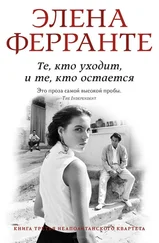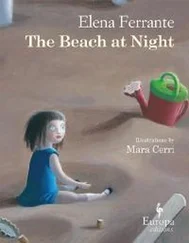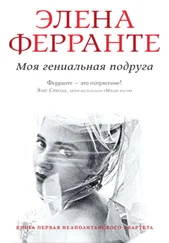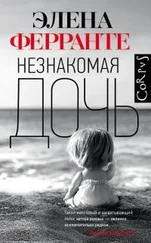“So? Are you studying the Gospels?”
“Yes,” I said, “but I don’t like the story.”
He gave me an ironic smile:
“That’s interesting, you don’t like the story.”
He kissed me on the forehead and in the doorway said:
“We’ll talk about it later.”
Talk about it with him, never, ever. What could I say to him. I had begun to read with the idea that these were fables that would lead me to a love of God like Roberto’s. I felt a need for it, my body was so tense that the nerves sometimes seemed like high-tension wires. But those texts didn’t follow the course of a fable, they unfolded in real places, the people had real jobs, they were people who had really existed. And ferocity stood out more than any other feeling. Finishing one gospel, I began the next, and the story seemed even more terrible. Yes, it was a disturbing story. I read and became agitated. We were all serving a Lord who kept us under surveillance to see what we chose, good or evil. What an absurdity, how could one accept such a servile condition? I hated the idea that there was a Father in Heaven and we children were below, in the mud, in the blood. What sort of father was God, what sort of family that of his creatures: it frightened and at the same time infuriated me. I hated that Father who had created such frail beings, continuously exposed to suffering, so easily perishing. I hated the fact that he was watching how we puppets dealt with hunger, thirst, illness, terror, cruelty, pride, even the good sentiments that, always at risk of bad faith, concealed betrayal. I hated the fact that he had a son born of a virgin mother and subjected him to the worst, like the unhappiest of his creatures. I hated that the son, although he had the power to work miracles, used that power for games that were scarcely effective, not for anything that really improved the human condition. I hated that the son tended to mistreat his mother and didn’t have the courage to stand up to his father. I hated that the Lord God let his son die, suffering atrocious torture, and didn’t deign to respond to his cry for help. Yes, it was a story that depressed me. And the final resurrection? A horribly mutilated body that returned to life? I had a horror of the resurrected, I couldn’t sleep at night. Why have the experience of death if you are going to return to life for eternity? And what was the sense of eternal life in a crowd of resuscitated dead people? Was it really a reward, or was it a condition of intolerable horror? No, no, the Father who lived in Heaven was exactly like the unloving father of the chapters in Matthew and Luke, the one who gives stones, snakes, and scorpions to the son who is hungry and asks for bread. If I were to talk about it with my father, I would be at risk of coming out with: this Father, Papa, is worse than you. So I found myself justifying all of his creatures, even the worst. Their condition was harsh, and when they nevertheless succeeded in expressing, from within their sludge, truly great sentiments I was on their side. On my mother’s side, for example, not her ex-husband’s. He used her and then thanked her with mawkish flattery, taking advantage of her capacity for sublime feeling.
One night my mother said to me:
“Your father is younger than you. You’re growing up and he’s still a child. He’ll remain a child forever, an extraordinarily intelligent child hypnotized by his games. If you don’t keep an eye on him, he gets hurt. I should have understood him as a girl, but then he seemed to me a grown man.”
She’d been mistaken and yet she held tight to her love. I looked at her with affection. I wanted to love like that, too, but not a man who didn’t deserve it. She asked me:
“What are you reading?”
“The Gospels.”
“Why?”
“Because there’s a guy I like, and he knows them really well.”
“Are you in love?”
“No, are you crazy, he has a girlfriend: I just want to be his friend.”
“Don’t tell Papa, he’ll want to start discussing it and he’ll ruin the reading for you.”
But I didn’t run that risk, I’d already read it all, down to the last line, and if my father interrogated me, I would respond with generic phrases. I hoped, one day, to talk about it in depth with Roberto, and to make appropriate observations. In church I’d thought I couldn’t live without him, but time was passing, I continued to live. That impression of indispensability was changing. Indispensable now seemed to me not his physical presence—I imagined him far away, in Milan, happy, engaged in countless fine and useful things, recognized by everyone for his merits—but reorganizing myself around a goal: becoming a person who could earn his respect. I now felt him as an authority equally indeterminate—would he approve if I acted in such and such a way, or would he be opposed—and indisputable.
Also around then I gave up caressing myself every night before going to sleep as a reward for the unbearable effort of existing. It seemed to me that the desolate creatures destined for death had a single small bit of luck: alleviate the suffering, forget it for a moment, setting off between their legs the device that leads to a little pleasure. But I was convinced that, if Roberto knew, he would regret having tolerated beside him, even just for a few minutes, a person who was in the habit of giving herself pleasure on her own.
9.
At that time, without deciding to—on the contrary, as though I were resuming an old routine—I went back to studying, even though school seemed to me even more than before a place of crude banter. I started getting good grades and at the same time forced myself to be friendlier toward my classmates, and I began going out with them on Saturday nights, though I avoided establishing friendships. Naturally, I could never completely eliminate my sharp tones, aggressive outbursts, hostile silences. And yet it seemed to me that I could become better. Sometimes I stared at a pot, a glass, a spoon, or even a stone on the sidewalk, a dry leaf, and marveled at its shape, whether it was crafted or appeared in its natural state. Streets in Rione Alto that I had known since childhood I now examined as if I were seeing them for the first time, stores, passersby, eight-story buildings, balconies that were white stripes against ochre or green or blue walls. The black lava paving stones of Via San Giacomo dei Capri on which I had walked countless times, the old gray-pink or rust-colored structures, the gardens. The same thing happened with people: teachers, neighbors, shopkeepers, passersby on the streets of the Vomero. I was amazed by a gesture, a look, the expression on a face. These were moments when everything seemed to have a secret depth and it was up to me to discover it. But it didn’t last. Although I tried to resist, what prevailed was a sense of annoyance at everything, a tendency to scathing judgments, an urge to quarrel. I don’t want to be like that, I said to myself, especially in a state of half sleep, and yet I was that, and realizing that it was the only way I could express myself—harsh, mean—sometimes pushed me not to rectify things but, with a treacherous pleasure, to do worse. I thought: if I’m not lovable, fine, let them not love me; nobody knows what I carry inside me day and night, and I took refuge in the thought of Roberto.
And yet, with pleasure, with surprise, I realized that, in spite of my outbursts, my classmates, both girls and boys, sought me out, invited me to parties, seemed to appreciate even my abusiveness. It was thanks to this new climate, I think, that I managed to keep Corrado and Rosario at bay. Of the two, the first to show up again was Corrado. He appeared outside school, he said:
“Let’s take a walk in the Floridiana.”
I wanted to refuse, but to interest the girls who were looking on I nodded agreement, though when he put his arm around my shoulders I slipped out. At first, he tried to make me laugh, and I laughed out of politeness, but when he tried to draw me off the paths, in among the bushes, I said no, first nicely, then decisively.
Читать дальше

![Элена Ферранте - История о пропавшем ребенке [litres]](/books/32091/elena-ferrante-istoriya-o-propavshem-rebenke-litres-thumb.webp)






![Элена Ферранте - Дни одиночества [litres]](/books/404671/elena-ferrante-dni-odinochestva-litres-thumb.webp)



